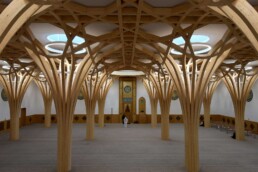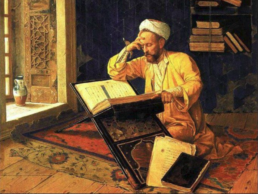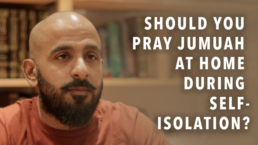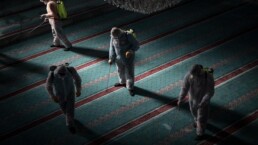Is there one or two calls to prayer for Jumu'ah?
It's a widespread practice to perform two adhāns (calls to prayer) along with an iqāmah (call to stand), but many take two adhāns to be an obligation.
This is incorrect and the following briefly outlines why:
So you want to be a scholar? Things to consider
Traditionally, Arabic books published on this topic tend to be titled talab
al-‘ilm (Seeking knowledge) or kitab al-ilm (book of knowledge), and
focus on some sort of general curriculum reflecting the legal (fiqh) and
theological (i’tiqād) inclinations of the author. I don't think it necessary to
reproduce that here. Instead, I offer some considerations (by way of questions)
that aren't so often discussed.
The 'threat' of reactionary religion
The threat to "islam" (subservience to God) today is not simply the West or secular ideologies which actually have relatively little impact on the individual lives of ordinary believing people who carry on with their faith, nor do I believe God will allow truth to be overcome. He says:
God has decreed: ‘I shall most certainly win, I and My messengers.’ God is powerful and almighty.
Quran 58:21
But one of the greatest threats to such submission is reactionary religion, it is changing the face of the faith. Nearly everything, from aqidah to fiqh, not to mention political engagement, is being framed or determined by the insecurities of Muslims. Nuance and intelligence are massacred by ignorant dogma, and as much as some despise secularism, their entire outlook is shaped by it, by reacting to what they perceive as secular hegemony and then framing their positions in contradistinction to it. That is an entirely incorrect understanding of what God has revealed. We ought to define Islam and the interests of Muslims by God's standards, and sometimes those positions will agree with others, at other times they won't.
Should you pray Salat al-Jumu'ah at home during self-isolation?
Amidst the noise
Today, everything is porous and transient. For many, everything is understood as being subjective, and resultantly this has led to major instability - not only within communities and amongst them, but also with individuals themselves. What is truth, and what is falsehood? A lot of the time, what we intuitively know to be inconsequential issues (such as the unfrutiful debates on the nature of God, or traditionally sectarian topics) still manages to take up much of our time, and that's in between the bouts of mild depression or deep frustration evoked by our presence on social media.
CVD19 and the future
There are some important things for us to consider:
1. Coronavirus is here and we have to face it for the considerable future, whether we like it or not. We must take the necessary precautions, but not become obsessed. We need to get on with ‘life’ under the new circumstances. As westerners, we’ve lived very comfortable lives, and most of our anxieties merely reflect losing some of those comfortabilities.
What to do with the kids? Free YouTube Webinar
Monday 23rd March, 2020 @ 8pm (GMT)
(When the kids are off to bed!)
With the coronavirus shutting down schools, most children are at home with parents picking up the slack, and not sure what to do and what to make of the situation.
We've organised a free webinar on YouTube for those who find themselves in these circumstances, with Shaikh Mohammed Nizami, an independent London-based scholar, who also has a PGCE (Institute of Education, UCL) and has homeschooled (under the tutelage of his wife!) for a number of years.
Are you thinking about your kid's schooling? Do you feel overwhelmed with the idea of taking responsibility for their education? Do you want them to be productive during this difficult period of isolation, but not sure how? How can you infuse godliness and faith into the philosophy of their education?
The webinar covers some introductory themes and points of consideration for those isolating with their kids. It's not for homeschoolers, it's for those who find themselves in this situation temporarily.
Subscribe to the official YouTube page (Nizami Sessions) to join the webinar and keep in the know for upcoming videos - click here
Verse analysis of 2:114
Who could be more wicked than those who prohibit the mention of God’s name in His places of worship and strive to ruin them? Such people should not enter them without fear: there is disgrace for them in this world and painful punishment in the Hereafter.
Qur'an 2:114
Some religious personalities have been using this verse to argue that the temporary suspension of congregational prayers during lockdown is wrong. However, the brief points listed here outline how using this verse for such a conclusion is unsound.
How so?
Coronavirus: What should mosques do?
The issue of social distancing is complex because there are a number of factors at play. The key is to correctly understand those factors, something which almost all of the fatwas promoting mosques access fail to do. What’s a fatwa meant to be?
Neither a scholar nor a judge can issue a ruling in reality unless he understands two things: First, understanding the context with an analytical cognisance, and deriving the reality of what's happening through operative variables, indicative factors and inferential signs until he comprehensively knows the situation. Second, understanding obligations related to the context which is to understand God's dictates expressed in His Book or in the prophetic sayings regarding the situation.
Ibn al-Qayyim, I’lām al-Muwaqqi’īn
This article addresses whether mosque leadership should temporarily restrict congregational prayers.
Despite its brevity, I aim to comprehensively cover the salient points by summarising the context, the key shar’ī directives, and relevant factors – the minimum required for competent decision making. This article does not aim to be exhaustive but even the simplified arrangement here is compelling enough to urge temporary restrictions.
Should mosques remain open for congregational prayer? Countering a poor fatwa
To read a comprehensive article on the issue, click here.
Some friends sent me a fatwa that represents the position of major Deobandi figures in the Midlands and North, asking me to comment on it (given the serious nature of the affair). The fatwa is dangerous (especially where it encourages 60 year olds to attend congregational prayers) since it pertains to matters of life and death, as well as poorly reasoned. And this is not to mention that it's predicated on folk religion – an outlook that represents a village mentality that takes God’s deen as magical or a superstitious way of thinking. Yes, the masājid’Allāh are safe spaces where believers congregate, but they’re not mystical buildings that keep out physical harms or devils, nor does a building become consecrated merely because we call it a name.
A mosque is an assigned place where believers gather, when and if they need to gather. And when it comes to prayer, the Prophet said: “The earth was made a masjid and purifying for my mission.” (al-Bukhārī) As long as it is clean, a believer connects to God anywhere. We really need to get that subservience to God will not collapse because some mosques in some parts of the world are temporarily closed.
None of the points mentioned in the fatwa are compelling. It is unworthy of consideration, and as I quickly pick apart each point, you’ll see how bad it is. As believers, we are called to employ our intellects and revelatory guidance. Unfortunately, this fatwa does neither soundly.











